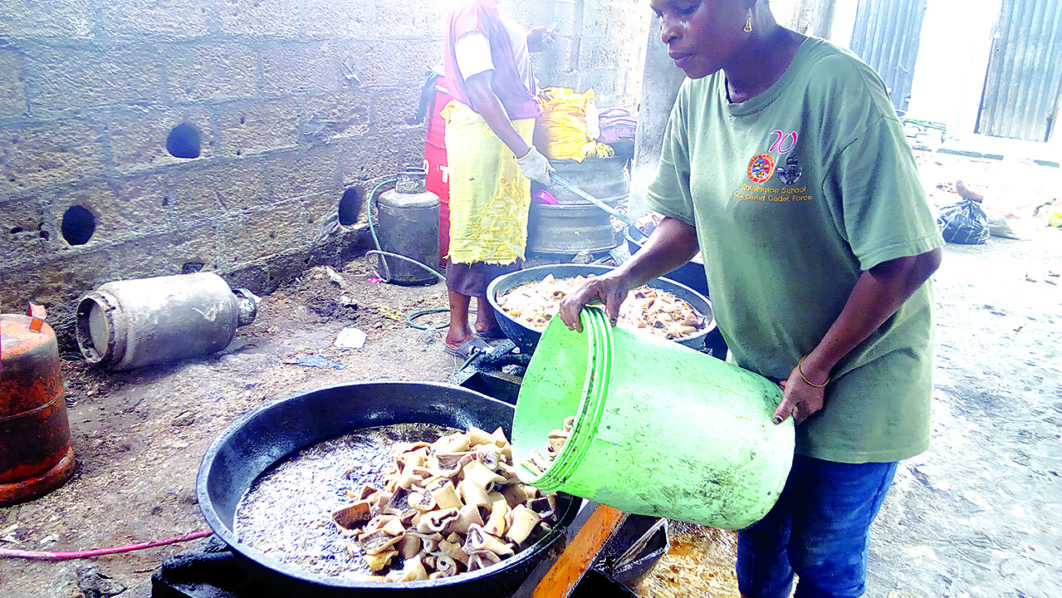
Staying alive doesn’t necessarily demand a complete three-square meal, but maintaining a hygienic diet is crucial for a healthy lifestyle. Similarly, the scarcity of good food can lead to the consumption of unhealthy alternatives.
However, despite recent economic challenges, the consumption of “ponmo,” also known as hides, continues to thrive in Nigerian markets. This is in spite of warnings from experts and the spread of diseases like anthrax associated with such consumption.
Months after the government’s advisory, ponmo remains a popular food item in Nigerian markets. This trend persists even though the Federal Ministry of Agriculture, through its Permanent Secretary, Ernest Umakhihe, warned against consuming hides due to the risk of Anthrax disease.
Nonetheless, both sellers and consumers of ponmo in Nigeria believe that its consumption is inevitable given the current economic situation. According to them, consuming ponmo helps alleviate the effects of economic hardship.
In essence, despite government warnings and health concerns, the consumption of ponmo persists in Nigeria due to various factors, including tradition, affordability, and personal preferences.
Mrs. Abbas, a ponmo seller at the popular Bariga market, in Lagos, emphasised that she and every member of her family were raised with ponmo and that it’s deeply ingrained in their eating habits. She told TheGuardian that while some parts of ponmo are used for non-food purposes, the part consumed is different.
“We were raised with ponmo, it won’t work to stop eating it,” she said. “Though, some use other parts of ponmo to make bags and shoes, but those substances of ponmo are different from the one we consume.”

Another seller, Iya Faruk, highlighted the affordability and availability of ponmo during challenging economic times. She mentioned that it’s a common ingredient in soups and stews as it aids in stretching meals for households.
“It is impossible not to eat ponmo, especially in this economic hardship,” she said. “If we cook soup without ponmo, the pot will be empty the following day.”
Mrs. Victoria Chibuike, a trader who resides in Ilaje, a Lagos suburb, blamed government inaction for the continued availability of ponmo in markets.
“Government is not helping the matter,” she said. “They know the ban on ponmo is for our good health, so they should ensure ponmo is intercepted and prevented from being available in markets.”
Interestingly, some individuals prefer ponmo over fish or meat, regardless of their financial status. Miss Aisha Maruf, a student of biology education at the University of Lagos, revealed her preference for ponmo even when she could afford fish. She suggested that rather than banning ponmo, the government should explore other solutions to prevent the spread of anthrax.
“Personally, I love ponmo, even if I have money for fish; I just prefer ponmo to smoked fish,” she told TheGuardian. “Government cannot just ban the consumption of ponmo, they should rather find other solutions to the disease.”
[ad unit=2]






